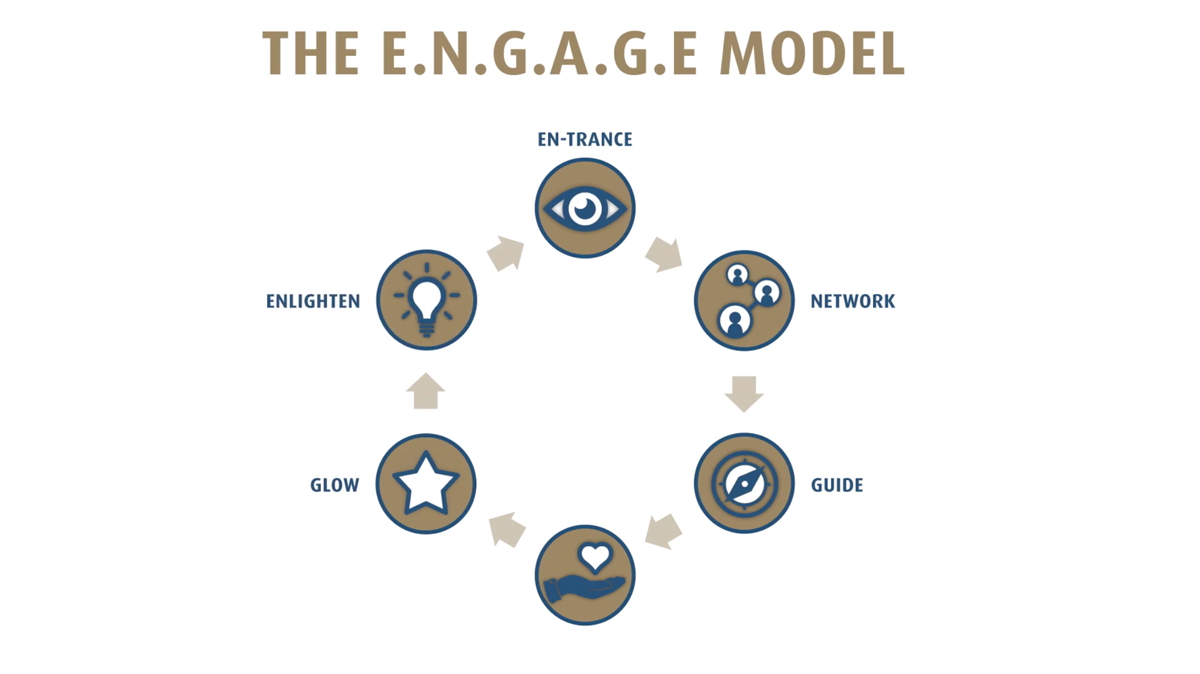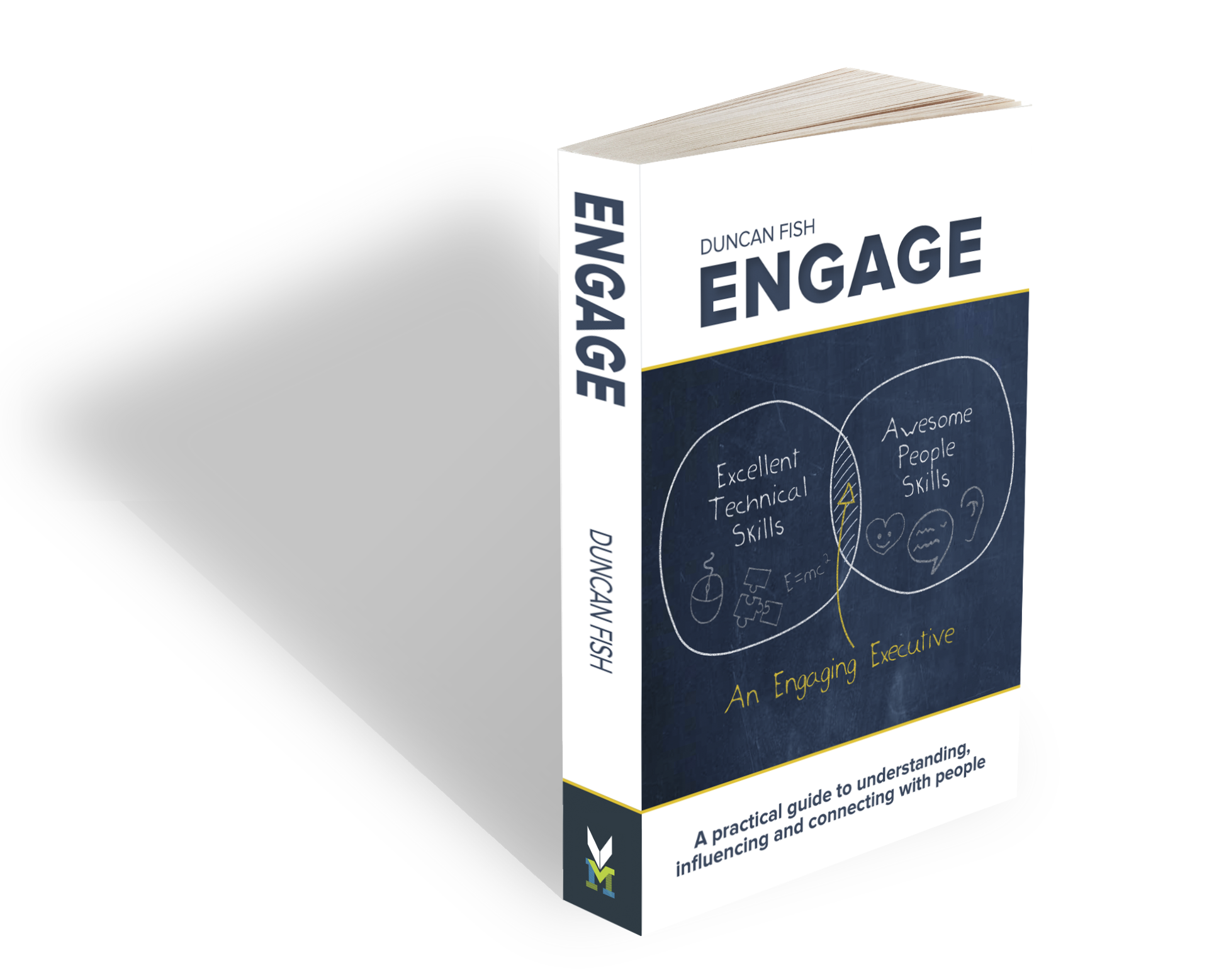Old Dog, New Tricks: How We Learn Interpersonal Skills
Posted By Duncan Fish on March 15, 2017

You may think that you’re too set in your career ways to change at this point, that if you’re already more on the reserved side at work, or if you don’t necessarily get along with your coworkers, that there’s no hope. However, you should be happy to know that’s not the case!
Even though we all prefer to learn new skills in different ways (maybe you’re more of a visual learner, or an experiential learner), we all follow a basic set of behavioural patterns when picking up a new skill, whether it’s becoming a pro at small talk, or enhancing our leadership qualities.
Here are a few patterns you may recognise in your own behaviour, that can help you out when learning new interpersonal skills, like the kinds needed to become an Engaging Executive.
Unconscious vs. Conscious Incompetence
The first step to learning what you don’t know, is realising that you don’t know something in the first place. We all have things we don’t know we don’t know. This is called Unconscious Incompetence. The first stage in developing a new interpersonal skill is self-awareness. Once you are aware, you can take action.
Teaching someone who knows they need a certain interpersonal skill, and wants to learn it, however, is a completely different experience, and often a pleasant one. Those individuals make strides toward becoming the types of coworkers and leaders that they want to be.
It doesn’t matter how you come to the realisation that your interpersonal skills could do with an upgrade. Maybe you were passed over for a promotion, even if you are technically proficient in your role? Maybe you received some uncomfortable feedback from your manager? Maybe you saw lesser-qualified people getting up the ladder quicker? Whatever happened, you’re suddenly aware that you need to learn some new tricks, and this is a great place to be, full of opportunity and a willingness to change your life.
Don’t think that this is an easy spot to be in, though. This is just the beginning of the road, and there are lots of setbacks and obstacles to overcome. This is the most painful stage of learning and it is known as Conscious Incompetence. You’ll feel like giving up at times, but, if you stick through the race, you’ll come out a winner, and maybe even an Engaging Executive.
The next stage is when it starts to feel comfortable again, yet you still have to focus when applying the tools and techniques to get the desired result. This stage is called Conscious Competence. Finally, after a lot of practice, these new interpersonal skills become automatic. This utopian stage is known as Unconscious Competence. This is when your ability to do things comfortably and naturally has grown. This related to another model of learning.
The Three Zones
There are a few “zones” that you may find yourself in when you’re learning a new interpersonal skill. One is your Comfort Zone, everyone’s favourite place to be. You’re acting how you normally act, doing what you like to do, behaving how you’ve always behaved. If you don’t want to see any improvement in your life, stay right here. Career opportunities may pass you by, but you’re least likely to encounter any hurdles in life if you just stay put.
Then, there’s the Stretch Zone, which is a favourite area of life for those with a passion for learning to be the best person they can be. In the Stretch Zone, you’re pushing yourself to learn or do something new, and facing a little discomfort and unfamiliarity head-on, with zeal. Whether you’re just starting out with smiling at strangers, or figuring out how to own the room, you’re pushing your boundaries, and loving it! The longer you stay in your Stretch Zone, the bigger your Comfort Zone becomes, as your Stretch Zone drops away, only to be absorbed by your Comfort Zone, as things that were once strange or scary, become routine and normal.
Lastly, there’s the Overwhelm Zone. Preferred by extremists and those who think pushing themselves to the brink is the answer, this is where you throw yourself into leadership situations and hope things turn out okay. You push yourself to your physical and mental limits, exposing your mind and body to unneeded stress, anxiety and a giant workout for your flight-or-fight response. This is not where you want to be and, even if you see a few results at first, you’ll soon see this is no way to learn (or live), as your efforts go south quickly.
You’ve got to find your stretch zone, your sweet spot, without over- (or under-) doing it.
Want to lift the veil on the Unconscious Incompetence of your interpersonal skills? Take the FREE ENGAGE Questionnaire now.
If you would like to read a success story from our programme, read here.



